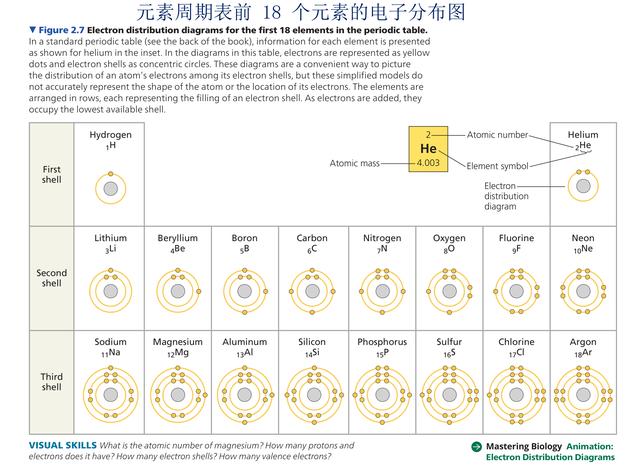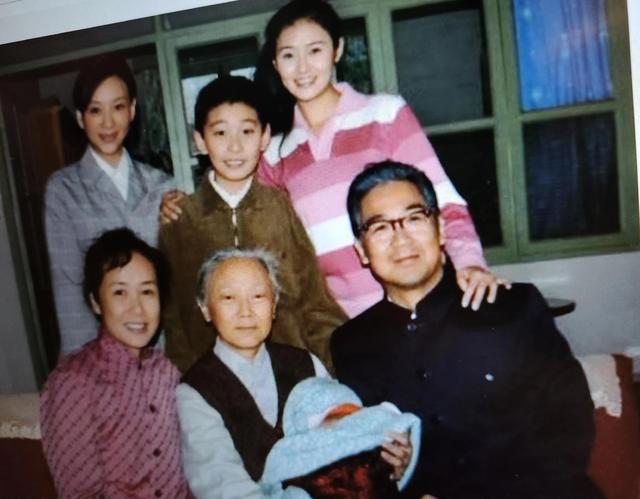
这一节,我们学习第十三组单词:

请家长朋友牢记:英语中sh、ph、th、ch、rh、tch这样的组合通常对应某个音素,不可以再拆解。
英语的th,通常有3种读法:
1、 th读[ð],对应现代希腊语的δ。英语的the(定冠词),this(这),that(那),these(这些),those(那些),they(他们,主格),them(他们,宾格),their(他们的,所有格)中的th都读[ð]。
2、 th读[θ],对应现代希腊语的θ。英语单词theme(主题),theroy(理论),thesis(论文),thin(瘦的),think(认为),thank(感谢)中的th都读[θ]。
3、 th读[tʰ](DJ音标和KK音标都标注为[t]),对应英语、德语送气的t,汉语拼音的t,古希腊语的θ,古典拉丁语用th改写。如英语单词Thailand(泰国),thyme(百里香),Thames(泰晤士河)中的th都读[tʰ]。
【英语】thin[θɪn] adj. 薄的, 瘦的, 细的
注:th作为一个组合读[θ]。也就是希腊字母θ在现代希腊语的读音。这里的in和单独作单词的in(在……里)读音相同。
强烈建议顺便熟悉英语单词think。
【英语】think [θɪŋk]vt., vi. thought, thinking1. 想;思考;思考
Have you thought about what job you are going to do?
你考虑过准备做什么工作了吗?
2. 以为;觉得;认为;相信
I don't think his decision is wise in reality.
实际上,我觉得他的决定并不明智。
Do you think it advisable to wait a little longer?
再等一会儿你看好不好?
What do you think of my singing?
你觉得我的歌唱得怎么样?
3. 想出;忆及
I can't think of his name at the moment.
我一时想不起他的名字。
Can you think of any explanation for his frequent absence from work?
他经常旷工你能想得出有什么理由进行解释吗?
4. 料想;想到
We didn't think we'd be this late.
我们没有想到会这样晚。
注:英语的-ink通常读[ɪŋk]。建议顺便熟悉英语单词ink(墨水),pink(粉红色),link(链接),wink(眨眼),twink(闪烁)。
请家长朋友大概了解词源:
From Middle English thinne, thünne, thenne, from Old English þynne, from Proto-West Germanic *þunnī, from Proto-Germanic *þunnuz (“thin”) – compare *þanjaną (“to stretch, spread out”) – from Proto-Indo-European *ténh₂us (“thin”), from *ten- (“to stretch”).
Cognate with German dünn, Dutch dun, West Frisian tin, Icelandic þunnur, Danish tynd, Swedish tunn, Latin tenuis, Irish tanaí, Welsh tenau, Latvian tievs, Sanskrit तनु (tanú, “thin”), Persian تنگ (tang, “narrow”). Doublet of tenuis. Also related to tenuous.
请家长朋友大概了解:英语中日耳曼语单词中的th通常对应拉丁语的t, 德语的d。
【英语】dünn(国际音标/dʏn/) adj. adv. 瘦的。细的。细致优雅的。精巧的。脆弱的。
【拉丁语】tenuis(国际音标/ˈte.nu.is/):tenuis, tenuis, tenue adj. thin, fine; delicate; slight, slender; little, unimportant; weak, feeble;
======================
【英语】short[ʃɔrt /ʃɔːt]n. 短片; 短篇小说; 短文; 烈酒adj. 短的; 缩写的; 矮的; 短暂的adv. 突然, 不足, 缺乏
注:英语的sh,对应德语的sch,法语的ch,读[ʃ]。
建议和port(港口),sort(种类),fort(堡垒)放在一起比较记忆。
词源:From Middle English schort, short, from Old English sċeort, sċort (“short”), from Proto-West Germanic *skurt, from Proto-Germanic *skurtaz (“short”), from Proto-Indo-European *(s)ker-.
Cognate with shirt, skirt, curt, Scots short, schort (“short”), French court, Dutch kort, German kurz, Old High German scurz (“short”) (whence Middle High German schurz), Old Norse skorta (“to lack”) (whence Danish skorte), Albanian shkurt (“short, brief”), Latin curtus (“shortened, incomplete”), Proto-Slavic *kortъkъ. Doublet of curt. More at shirt.
英语的sh,德语的sch都源自原始日耳曼语的*sk。
英语的sc,通常源自拉丁语。
英语的sk,通常源自古诺尔斯语。
======================
【英语】handsome['hænsəm]adj. 英俊的; 慷慨的; 大方的
拆解:hand some(形容词后缀)。
建议顺便熟悉:awesome(可怕的),
词源:From Middle English handsum, hondsom, equivalent to hand -some. Compare Dutch handzaam, German Low German handsaam. The original sense was ‘easy to handle or use’, hence ‘suitable’ and ‘apt, clever’ (mid 16th century), giving rise to the current appreciatory senses (late 16th century).
======================
【英语】new[nuː /njuː]adj. 新的, 最近的, 陌生的adv. 新; 最近
英语的-ew通常读[ju:]或[u:]。建议顺便熟悉few(很少的),dew(露),hew(砍),chew(咀嚼)。
词源:From Middle English newe, from Old English nīewe, from Proto-West Germanic *niwi, from Proto-Germanic *niwjaz, from Proto-Indo-European *néwyos (“new”), from *néwos.
建议牢记:英语的new和希腊语的νέος(neos)同源。
建议家长朋友大概熟悉一下。
【希腊语】νέος(国际音标/né.wos(古)/ → /ˈne.os(中古)/ → /ˈne.os(现代)/) adj. fresh, green, juvenile, modern, young, new, novel n. young man
【英语】neon[ 'nɪːɑn /-ɒn]n. 氖
词源:Borrowed from Ancient Greek νέον (néon), neuter of νέος (néos, “new”), from earlier *νέϝος (*néwos), from Proto-Hellenic *newos, from Proto-Indo-European *néwos.
请家长朋友记重点:英语的neon源自古希腊语的νέον (néon),是νέος (néos, “new”)的中性形式。
汉语中的“氖”:“气字头”表示是一种气体。下面的“乃”实际上是希腊语单词νέον (néon)中的νε-(ne)的音译。
【英语】neolith[ˈni(ː)əuliθ]n. (新石器时代的)石器
拆解:neo lith(表“石头”)。
【英语】lithium[ˈlɪθɪəm]n. 〈化〉锂(元素符号: Li)
拆解:lith i um。
汉语中的“锂”,“金字旁”表示它是金属。而“里”则是希腊语表“石头”的单词λίθος中的λί(li)的音译。
到这里,我们至少可以利用英语中的希腊语源单词认识2个化学元素。
学习化学的最重要任务是认识化学元素周期表的前18个元素。
强烈建议家长朋友收藏下面的截图:

请让孩子试试,看看能不能从截图中找到neon(氖)和lithium(锂)——重点注意它们的电子分布。
======================
【英语】does (do) [dʌz;dəz]v. 做; 工作; 有用
拆解:do es。
does是do的第三人称单数现在式——用在主语是第三人称单数时。
======================
【英语】bookshop[ˈbukʃɔp]n. 书店
拆解:book shop。
【英语】book[bʊk]n. 书, 书籍, 书本; 报章杂志; 著作; 本子v. 预订; 预约
【英语】shop[ʃɑp /ʃɒp]n. 商店, 零售店;
一定要注意:英语的sh,对应德语的sch,法语的ch读[ʃ]。
======================
【英语】zoo[zuː]n. 动物园
注:这里的oo读[u:]。
词源:Clipping of zoological garden or zoological park, now the usual form. See zoology.
【英语】zoology[zəuˈɔlədʒi]n.1. 动物学2. (某一地区的)全部动物; (某种动物的)动物特性[特征]3. 动物生理学
the zoology of Australia澳洲的动物
拆解:zoo logy。
词源:From Ancient Greek ζῷον (zôion, “animal”) λόγος (lógos, “knowledge”). Analyzable as zoo- -logy.
请大概了解:zoo源自古希腊语表“动物”的单词ζῷον(国际音标/zdɔ̂ːi̯.on(古)/ → /ˈzo.on(中古)/ → /ˈzo.on(现代)/)。
请家长朋友记重点:
1、 英语至少有1981个单词用到log-。
2、 英语至少有292个单词以-logy结尾。
只要大概熟悉这二百多个单词,就可以轻松掌握绝大多数英语、法语、德语、意大利语、西班牙语等众多语言中源自希腊语的常用字。
您的孩子阅读英语原版教材的能力立即就会有质的飞跃。
建议把zoo和zero放在一起比较记忆。
【英语】zero[ˈziərəu]n. (pl. zeros, zeroes)1. 【数】零2. 零号(即0), 零点, 零位, (温度计的)零度, 冰点, 零值; 【航空】零高度3. 最低点, 计算起点
4. 无足轻重的人, 没有价值的东西
5. 【天】天底
6. [Zero ]第二次世界大战时日本的零式战斗机
seven degrees below zero零下七度
absolute zero【物】绝对零度(摄氏零下273度)
zero-lift angle【航空】零升角
Their hopes reduced to zero.他们的希望破灭了。
词源:From French zéro, from Italian zero, from Medieval Latin zephirum, from Arabic صِفْر (ṣifr, “nothing, cipher”), itself calqued from Sanskrit शून्य (śūnya, “void, nothingness”). Doublet of cipher and chiffre.
=================================
【英语】school [skuːl]n. 学校; 上课; 上学, 学业;
注:这里的oo读[u:],请顺便熟悉英语单词cool(凉爽的),fool(笨蛋),tool(工具),pool(水池,台球)。
请家长朋友牢记:英语中,源自希腊语单词的ch读汉语拼音的k。
词源:From Middle English scole, from Old English scōl (“place of education”), from Proto-West Germanic *skōlā, from Late Latin schola, scola (“learned discussion or dissertation, lecture, school”), from Ancient Greek σχολεῖον (skholeîon), from σχολή (skholḗ, “spare time, leisure”), from Proto-Indo-European *seǵʰ- (“to hold, have, possess”). Doublet of schola and shul.
强烈建议家长朋友大概熟悉希腊语的σχολή (skholḗ).
【希腊语】σχολή(国际音标/skʰo.lɛ̌ː(古)/ → /sxoˈli(中古)/ → /sxoˈli(现代)/) n. faculty, holiday, leisure, school, vacation
重点注意:希腊字母χ在古希腊语中读汉语拼音的k,古典拉丁语用ch改写。也就是说,古典拉丁语的ch也读汉语拼音的k。
【英语】chlorine[ˈklɔːriːn]n.【化】氯(17号元素, 符号Cl)
chlorine water氯水(漂白液)
拆解:chlor ine。
词源:Coined by British chemist Humphry Davy in 1810 from Ancient Greek χλωρός (khlōrós, “pale green”) -ine.
汉字“氯”是一种气体,下面的“录”实际上表“绿色”,翻译自古希腊语表“浅绿”的单词。
请家长朋友特别注意:“氯”也是化学元素周期表前18个元素之一。
【英语】chromosome[ˈkrəuməsəum]n.【生】染色体
chromosome complex染色体群
拆解:chromo(表“颜色”) some(表“体”)。
词源:19th century: from German Chromosom, ultimately from Ancient Greek χρῶμα (khrôma, “colour”) σῶμα (sôma, “body”) (because they are stained under the microscope). Equivalent to chromo- -some.
【希腊语】χρώμα(国际音标/kʰrɔ̂ː.ma(古)/ → /ˈxro.ma(中古)/ → /ˈxro.ma(现代)/) n. color, colour [Brit.], dye, paint, pigment, shade
请牢记:-μα(ma)是表“结果”的名词后缀。
【希腊语】σώμα(国际音标/sɔ̂ː.ma(古)/ → /ˈso.ma(中古)/ → /ˈso.ma(现代)/) n. body, college, corps, corpus
请家长朋友牢记:只要坚持在听懂的基础上通过了解词源记单词,中国孩子都可以十分轻松地读懂英语原版教材。
利用英语原版教材学习数学、物理、化学、生物、医学等,可以帮助您的孩子在人工智能时代夺得先机。
强烈建议家长朋友和孩子一起利用英语原版的生物学教材开始简单有趣快乐的英语入门之旅。







